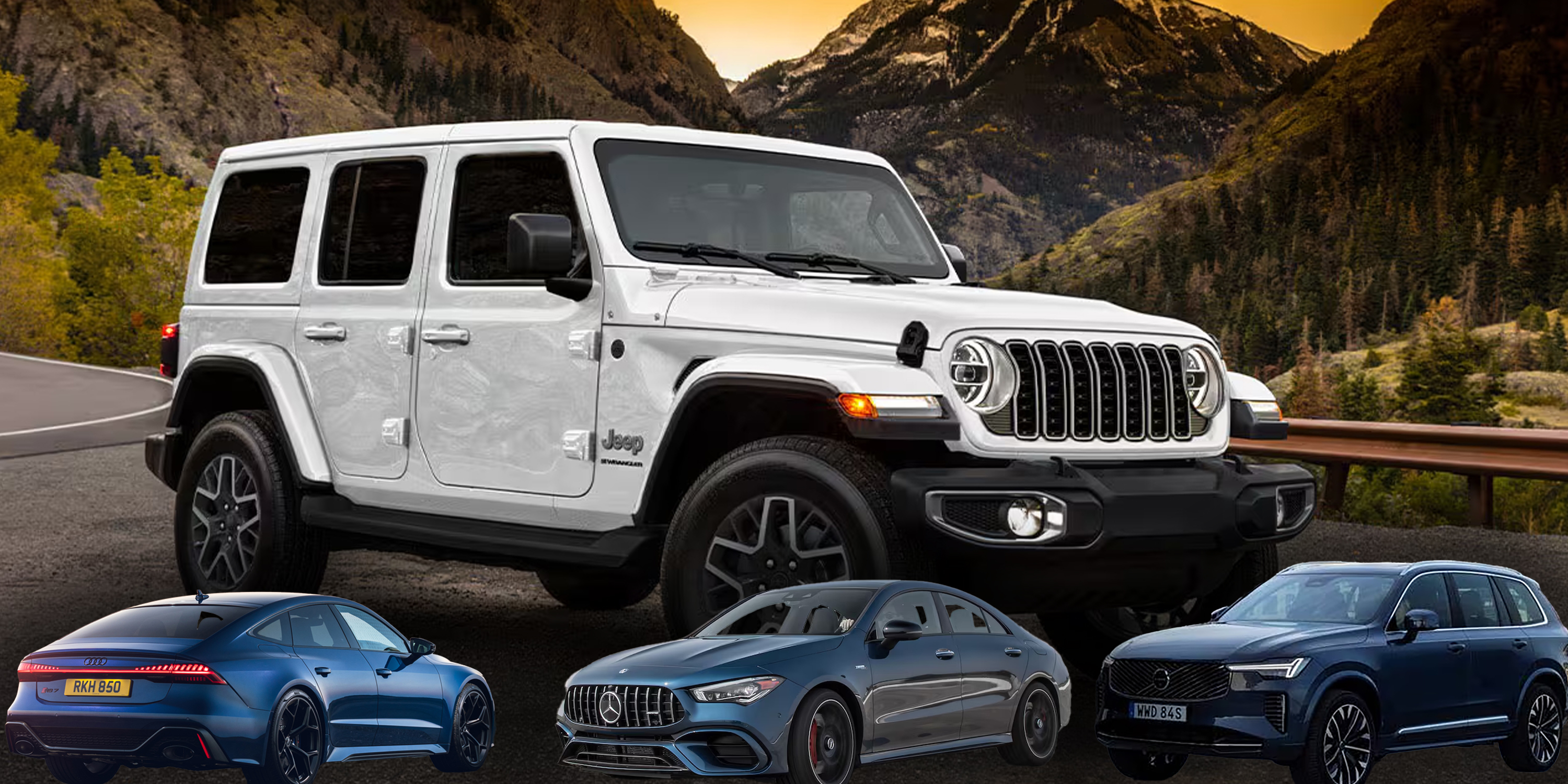Seven brands are affected by the South African vehicle recalls, including Jeep, Chrysler, Citroën, Mercedes-Benz, Audi, VW and Volvo. Issues range from rupturing airbags and battery fires to defective brakes and seatbelts.
While recall notices are not unusual, these stand out for breadth and the continued fallout from the long-running Takata airbag scandal that has triggered more than 100 million global recalls since 2008.
Based on publicly available sales data, the recalls could affect more than 7,000 vehicles on South African roads and are likely to be more due to incomplete reporting on premium brands such as Mercedes-Benz.
What is being recalled, and how many cars this could affect in SA:
Takata’s legacy: Jeep and Chrysler
Stellantis South Africa confirmed the recall of two models:
- Jeep Wrangler (2014-2016)
- Chrysler 300C (2014-2016)
The problem? Defective front passenger airbags manufactured by the now-defunct Takata Corporation. The airbag inflator may rupture under normal deployment pressure, sending metal shrapnel through the cabin. The risk: “serious injury or death”, according to the supplier.
Estimated SA sales
- Jeep Wrangler: about 1,800 units
- Chrysler 300C: about 1,500 units
Consumers are advised to book an immediate replacement at any authorised dealership. While most affected models are nearly a decade old, many remain on the road, and the risk persists with every drive.
Citroën’s quiet danger
Also linked to Takata inflators, the Citroën C4, DS4 and DS5 models (2009-2016) are being recalled. The rupture risk here applies to both driver and passenger airbags, with similarly catastrophic outcomes if the inflator bursts.
Estimated SA sales
- About 1,500 units.
The recall covers vehicles distributed over an eight-year period, long enough for second- or third-hand owners to be unaware they’re driving a risky vehicle.
Mercedes-Benz: brakes under pressure
Mercedes-Benz South Africa is recalling:
- CLA (C118, 2020-2023)
- S-Class (W223, 2020-2023)
The CLA’s issue lies in the rear brake hose length. Improper fitting may cause contact, wear and eventually leakage. The flagship S-Class, meanwhile, may suffer front brake fluid leaks in hot or humid environments after prolonged use.
No confirmed SA sales data is available. However, both models remain key parts of Mercedes’ upper-segment offering and are likely to number in the thousands.
Audi’s EV fire hazard
Audi SA has recalled 46 units of its high-performance electric sports car, the e-tron GT, covering vehicles produced from October 2021.
The problem lies in high-voltage battery modules with “technical irregularities” that may lead to overheating and, in the worst case, spontaneous fire.
“Acute fire hazard... severe or fatal injuries... significant property damage,” reads the formal recall language.
It’s an ominous signal for EV safety debates, especially as e-tron GTs retail north of R3-million.
VW Polo Sedan: seatbelt shortcomings
Volkswagen is recalling 905 Polo Sedans sold nationally from April 2025 onward. The rear seatbelt latch plates, it says, were “produced with insufficient hardness”. In a collision or hard braking, they may fail to restrain occupants properly, increasing the risk of injury.
In March 2025 alone, 423 Polo Sedans were sold, suggesting a fast-growing roll-out of potentially defective units.
VW has urged owners to visit any authorised dealership to have the component inspected and replaced.
Volvo XC90: battery overheating risks
Volvo SA is recalling 27 units of its flagship XC90 (2020-2022), citing a fault that could cause the high-voltage battery to overheat when fully charged. In a worst-case scenario, this may lead to a “thermal event” – industry-speak for internal battery fire.
While the numbers are small, the reputational risk for premium EV brands such as Volvo remains significant, particularly in a competitive SUV segment.
Safety in the shadow of legacy tech
At the core of several of these recalls is the long tail of the Takata airbag crisis – an industrial failure that continues to endanger lives nearly two decades later. Despite global awareness campaigns, many drivers remain unaware that their vehicles even carry the risk.
Newer vehicles are not immune. As EV adoption grows, high-voltage battery faults are fast becoming the next frontier of automotive safety risk, with thermal events now drawing as much concern as fuel tank ruptures once did.
What to do if you’re affected
- Visit the official National Consumer Commission (NCC) site or contact your vehicle manufacturer’s website recall checker.
- Book your car into an authorised dealership immediately – repairs are free under consumer protection law.
- Don’t wait for symptoms. Several of these faults present no visible warning before catastrophic failure.
Sales figures were compiled using data from MarkLines, AutoTrader, and manufacturer disclosures.
As the NCC tightens its consumer safety oversight, it’s clear that whether your vehicle is 10 years old or 10 days old, recalls remain a serious, often silent, risk.
In an age of AI-assisted vehicles and battery-powered drivetrains, it turns out that the smallest component – from a latch plate to a hose fitting – can be the most dangerous. DM





